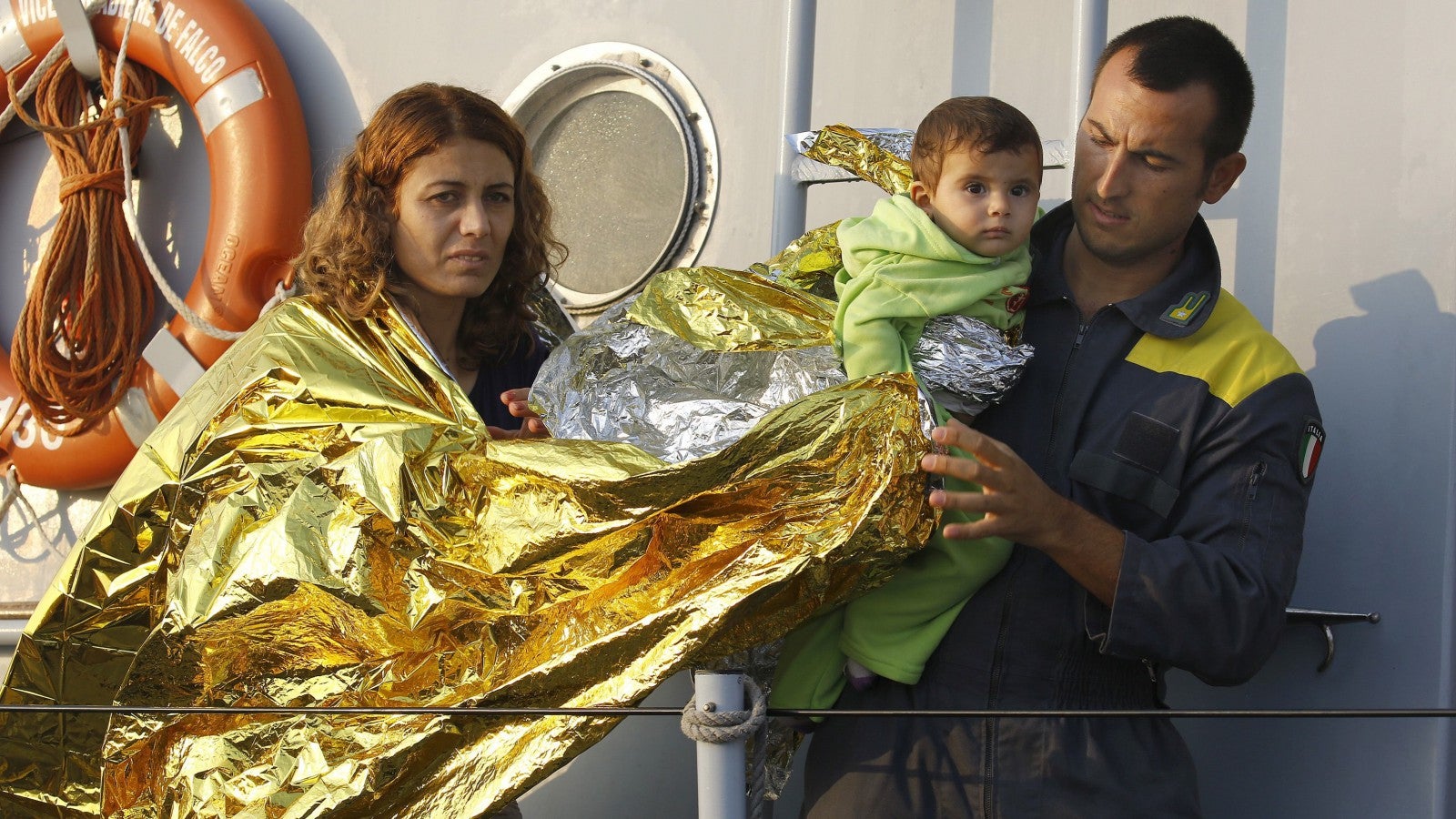How exactly to help the refugees flooding into Europe—and how not to
Disturbing images of distraught refugee families and, most recently, a drowned toddler, are flooding the media around the world. It’s not a new problem: Syrians have been fleeing war in their country for the last four years, and the UN High Commission for Refugees estimates that four million people are now in need. But their methods of escape have become increasingly desparate: aid agencies estimate that that around 2,000 people a day have attempted the treacherous crossing to Greece over the last month.


Disturbing images of distraught refugee families and, most recently, a drowned toddler, are flooding the media around the world. It’s not a new problem: Syrians have been fleeing war in their country for the last four years, and the UN High Commission for Refugees estimates that four million people are now in need. But their methods of escape have become increasingly desparate: aid agencies estimate that that around 2,000 people a day have attempted the treacherous crossing to Greece over the last month.
Many are now asking what they can do to help alleviate the suffering of refugees from the war in Syria and other violence—even as their governments dither or refuse to shoulder responsibility.
Goodwill alone doesn’t necessarily translate to refugees getting the help they need, when and where they need it. In one German city, for example, police asked the public to stop bringing donated food, clothes, and toys for arriving refugees because they were overwhelmed.
Many of the issues and pitfalls described in this video, which Quartz created after the Nepal earthquake in April, can be applied to other disasters, including the geographically broad ongoing disaster of refugees:
So, what’s the best way to help? Here are some things you can do right now:
Give money to an international organization
People are often moved to donate physical items, such as clothes, medicine, and food, says Benoit Matsha-Carpentier, who heads public communications for the International Federation of Red Cross and Red Crescent Societies in Geneva, Switzerland. That’s great if you’re close to people who need help, but difficult to manage on a very large or international scale, he says.
Money is easier to distribute worldwide. Large organizations often benefit from a network of local branches (the IFRC have local organizations in 189 countries), and can direct funds to people on the ground in the places where help is most needed. Money donated to the Red Cross’s global appeal for Syria are therefore directed to the Red Crescent in Syria, which can then use it to buy food or other supplies locally. Red Cross Appeals include:
- A global call-out to help people in Syria, which has so far reached 6.2 million people (pdf) in the war-torn country.
- An appeal to help 45,000 migrants in Greece over the next seven months. The program includes shelter, food, and restoring family links
- An ongoing appeal to help Italy look after 85,000 migrants, which began in May.
IFRC is planning to launch appeals for refugees in Macedonia and Serbia soon.
Medecins Sans Frontiers sends doctors and other medics to places where there’s a need. The group has launched three ships staffed with medical personnel in the Mediterranean, undertaking a search-and-rescue operation for those who try to make the dangerous crossing between North African and Europe. You can donate to the organization here.
The UN High Commission for Refugees works with NGOs in countries across the world. Their Urgent Life appeal is targeted at helping Syrian families in Jordan.
Refugees are not, of course, confined to Europe or only from the conflict in Syria. People continue to flee from violence, poverty, and repression in many places around the world, noted Matsha-Carpentier, including: from Myanmar in the Bay of Bengal area; Eritreans, Somalis and others displaced in the Horn of Africa; at the border between Mexico and the United States; and in the Sahara, where people from West Africa continue to try and cross to northern Africa and sometimes to the Europe.
Amnesty International works in most of those countries, as well as in Syria.
Raise your voice
Increasingly, citizens are making public statements about their own attitudes towards refugees, creating a counter-narrative to the anti-immigration rhetoric of some political parties, and the inaction of governments. Shows of solidarity have included protests in Austria, and banners at German football stadiums declaring “Refugees welcome.“
Some are trying to translate these feelings into pressure on governments. Many countries both inside an outside Europe have only agreed to allow in a very small number of Syrian refugees.
Online campaigning groups like Avaaz and Change.org offer a way for people around the world to start their own petitions, as well as leading campaigns, often with the aim of lobbying government.
“Help can take many forms,” said Matsha-Carpentier. “It can take the form of goods or money, but it can also take the form of raising your voice…and that’s help also.”